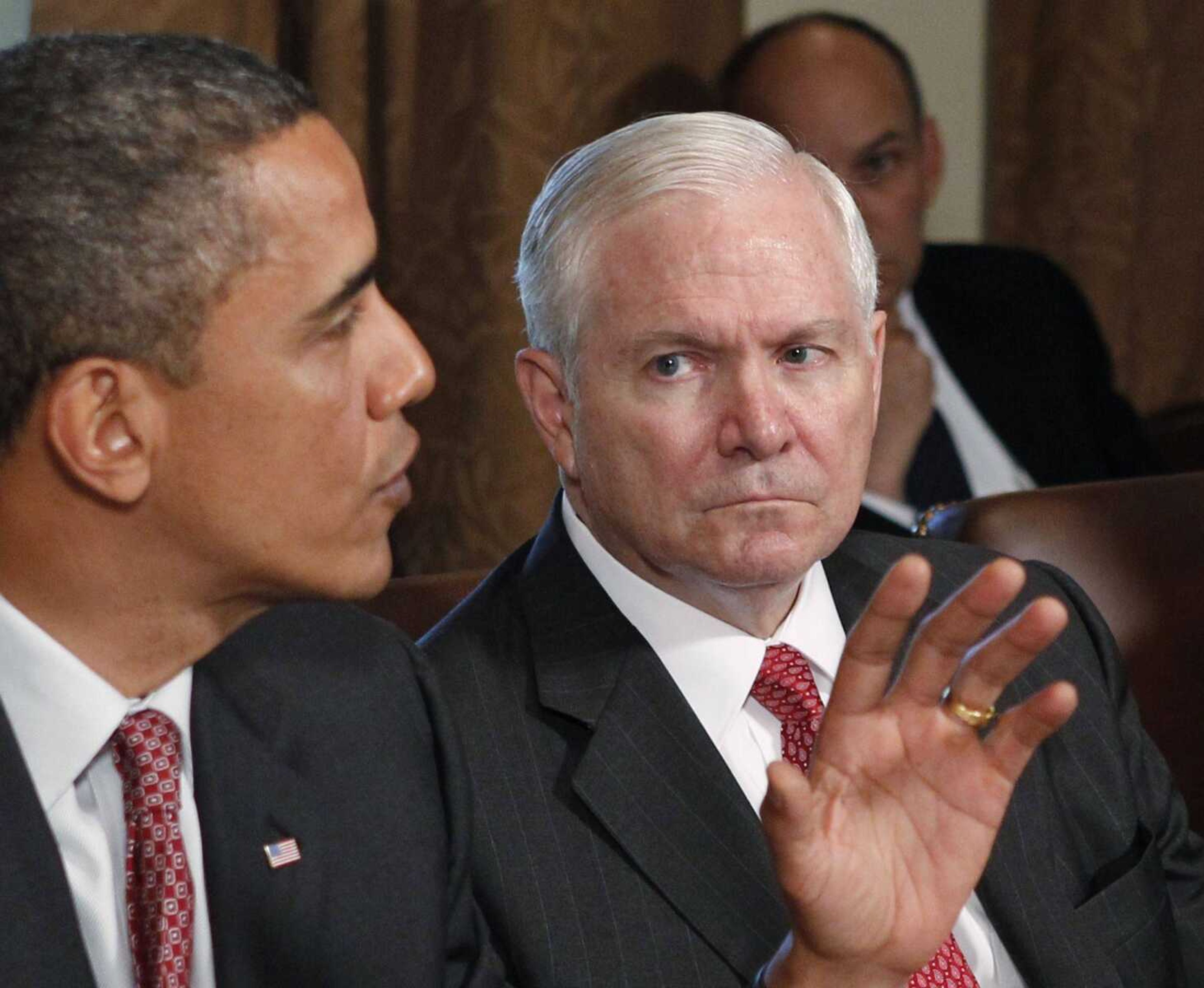Defense chief plans to retire next year
WASHINGTON -- Defense Secretary Robert Gates said in a magazine interview he wants to leave the Pentagon sometime next year, setting off furious speculation as to who might take his place. His top aides, meanwhile, tried to tamp down expectations that any decision had been made...
WASHINGTON -- Defense Secretary Robert Gates said in a magazine interview he wants to leave the Pentagon sometime next year, setting off furious speculation as to who might take his place.
His top aides, meanwhile, tried to tamp down expectations that any decision had been made.
"Every time Secretary Gates has seriously considered hanging it up for good, he ultimately has decided to keep serving," said Pentagon press secretary Geoff Morrell. "So my personal advice would be to wait for a real announcement or, better yet, wait to see what happens next year."
Washington insiders have long speculated that potential successors include Secretary of State Hillary Rodham Clinton; former Nebraska Republican Sen. Chuck Hagel; Michele Flournoy, undersecretary of defense for policy; John Hamre, chairman of the Defense Policy Board and president of the Center for Strategic and International Studies think tank; and Sen. Jack Reed, a Rhode Island Democrat.
Clinton and her aides have scoffed at pundits' suggestions that she might take the job. In numerous interviews, Clinton herself has flatly ruled out another bid for the presidency and suggested that she intends to retire from government service after her stint as secretary of state.
Flournoy and Reed are also considered long shots, with neither regarded as having enough experience in managing such a large bureaucracy. While Reed, a former Army ranger, is considered a favored Democratic talking head on defense matters, he also is the father of a toddler daughter and is said to prefer the relatively quiet life of a local politician.
His pick would also mean leaving a Senate seat vulnerable at a time when Democrats hold a slim majority.
As 2011 approaches, it is likely that other suggestions will be made, including retired military officers.
Morrell dismissed talk of who the next defense chief would be, calling it a "silly Washington parlor game."
Gates, 66, has been the Pentagon's top civilian boss since 2006 when he took the reins from Donald Rumsfeld. With Rumsfeld's popularity on Capitol Hill at an all-time low and violence in Iraq skyrocketing, Gates easily gained the reputation as a likable pragmatist and nonpartisan.
When President Obama took office in 2009, Gates was asked to stay on. The move was intended to maintain stability at a time of two wars and made good on Obama's promise of bipartisanship; Gates is a Republican.
Gates has since earned the nickname "Yoda" by his colleagues at the White House because of his experience managing large and complex organizations. He has served under eight presidents, including as director of the Central Intelligence Agency in the 1990s.
While Gates had agreed to work for Obama through at least this year, he has been open about his desire to return to civilian life in his home state of Washington. But he has not said when he might consider retiring.
In his interview with Foreign Policy magazine, Gates said for the first time that leaving in 2011 makes sense. It would give him time to oversee the major offensive under way in Afghanistan but bow out before the 2012 presidential elections.
"I just think this is not the kind of job you want to fill in the spring of a presidential election," he said. "So I think sometime in 2011 sounds pretty good."
White House spokesman Bill Burton, traveling with Obama, said it was "not surprising to him see discussing his plans to move on." Burton said Gates had served with distinction, and he declined to comment on Gates' future or who might succeed him.
Connect with the Southeast Missourian Newsroom:
For corrections to this story or other insights for the editor, click here. To submit a letter to the editor, click here. To learn about the Southeast Missourian’s AI Policy, click here.









